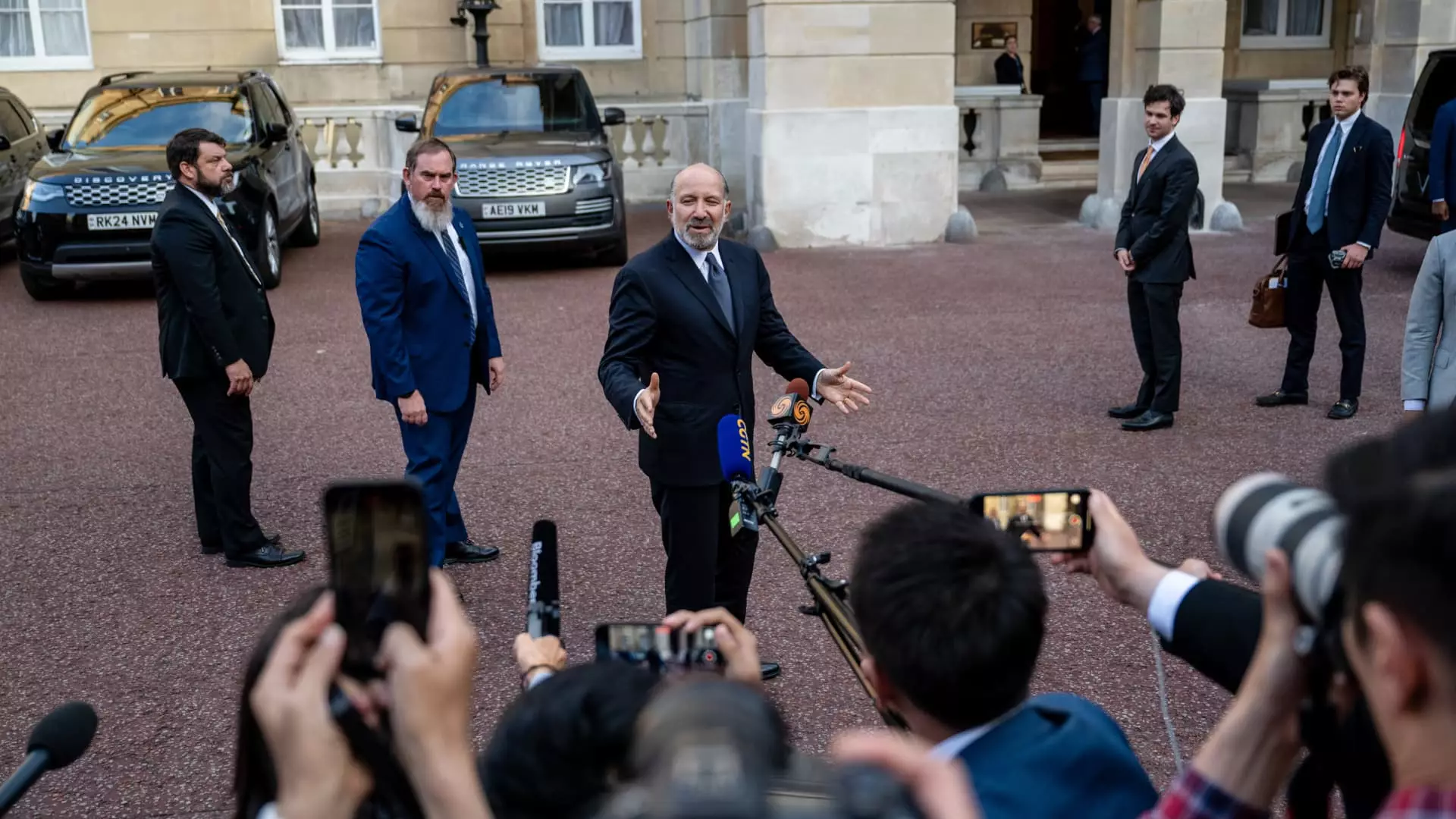The latest trade agreement between the United States and China, announced after high-level talks in London, feels like a precarious truce rather than a robust framework moving forward. Both parties, led by U.S. Commerce Secretary Howard Lutnick and China’s Vice Minister Li Chenggang, have declared a “framework” designed to implement the Geneva consensus reached during a recent call between President Trump and President Xi. Yet, if one takes a closer look, it’s clear the relationship is more defined by its unresolved tensions than by any real commitment to collaboration.
The term “framework” suggests hope and structure, but we must ask ourselves, are we really stepping toward de-escalation, or merely placing a temporary bandage on a festering wound? According to Jianwei Xu, a seasoned economist, the announcement merely reflects a mutual desire to avoid further escalation, rather than a transformative economic partnership. Though signs point toward negotiation, the reality remains fraught with misalignment between the two leading economic powers, hinting that the surface-level agreement is but a thin veil over deeper disagreements.
Underlying Tensions and Realities
While bilateral talks are ideal, the reality of the U.S.-China dynamic highlights a troubling trend: the relationship oscillates between cooperation and intensity, driven largely by political theater rather than genuine economic rapport. The recent deal includes a crucial component concerning China’s export limitations on rare-earth minerals—a vital resource needed for high-tech industries in the U.S. Interestingly, Lutnick indicated that easing restrictions on advanced technology sales to China would hinge upon China’s compliance with rare-earth exports. This back-and-forth illustrates that both sides remain governable not by shared goals, but rather by leveraging their relative economic strengths to impose each other’s hands.
Scott Kennedy from the Center for Strategic and International Studies accurately describes the situation when he notes that the agreement is not tied by mutual interests but rather by the leverage each side wields over the other. We’re left to ponder: Is this an economic agreement, or simply a stalling tactic meant to buy time until political climate shifts again? If history has taught us anything, it’s that these tactical alliances are often unsustainable, and the current negotiation cycle may soon experience further halts, as both sides grapple with their internal priorities.
The Media’s Role and Public Perception
The media and public discourse surrounding these negotiations also warrant scrutiny. Chinese state media wasted no time in championing Xi’s conversation with Trump, projecting an image of confident leadership and proactive diplomacy. However, they were markedly less enthusiastic following Lutnick’s comments. This subtle shift speaks volumes about the fragility of the agreements being touted. The silence from Chinese official sources makes it evident that while the negotiations might have been framed as a public diplomatic success, behind the curtain, there’s hesitance and the familiar threat of betrayal.
In the U.S., financial markets reacted predictably to the classification of this agreement. U.S. stock futures dipped in anticipation of concrete details, while Chinese indices saw a slight uptick, reflecting a stark global divide between optimism and skepticism. The fragile nature of such negotiations creates an environment in which investor confidence is at the mercy of political maneuvering, hinting that what might induce market fluctuations is not genuine economic progress but rather the whims of those in power.
As we stand on this precipice of what’s been labeled a significant step forward, one must wonder whether we are genuinely advancing or simply experiencing another round of empty hyperbole. For a progressive spirit that embraces liberal ideals, fostering a climate of genuine cooperation based on understanding and shared values is essential. But as it stands, this fragile agreement feels alarmingly superficial, requiring us to remain vigilant and critical. The road ahead is fraught with uncertainty, and until shared prosperity replaces mere political maneuvering, we are destined to repeat past follies in our endeavor for international economic cooperation.


Leave a Reply